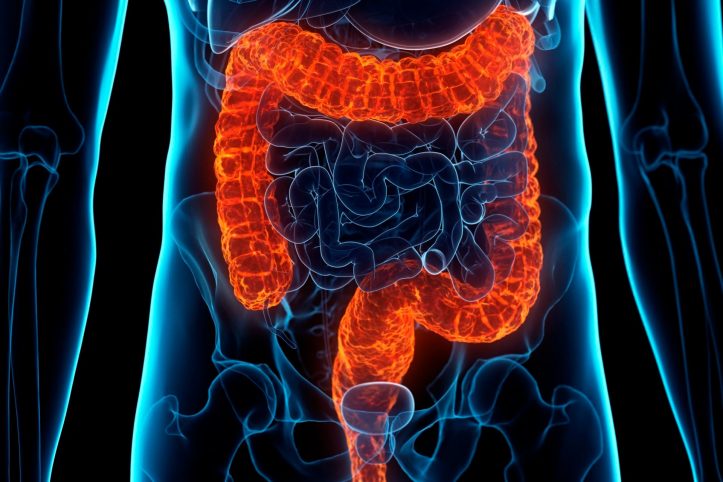Ulcerative Colitis occurs in the colon of those who have a weak immune system. Ulcerative Colitis is also known as Crohn’s Disease. Although Ulcerative Colitis is not contagious, it is more prevalent in those with a family history of the disease.
Ulcerative Colitis can affect anyone but is more common in people over 50 years old, women, and persons with certain ethnic backgrounds. If untreated Ulcerative Colitis can cause severe damage to the colon and intestinal lining.

Ulcerative Colitis occurs when the immune system becomes overly active and affects the digestive tract causing inflammation. The most common symptom of ulcerative colitis involves diarrhea, which is usually blood-stained. Other symptoms may include rectal and abdominal pain, abdominal swelling, fever, and weight gain. Some patients also complain of rectal and intestinal spasms.
Ulcerative Colitis can be caused by a number of factors including diet, hygiene, medications, stress, and genetics. In addition, it can also be aggravated by certain diseases, such as HIV/AIDS, and surgery, medications, and infection. Ulcerative Colitis patients must follow a strict diet, take high doses of Vitamin D, drink plenty of water, and take probiotics if they want to avoid serious side effects from this disease.
The most common of Ulcerative Colitis symptoms are diarrhea, which can occur up to three times per week, and can be blood-stained or dark green. Some other Ulcerative Colitis symptoms are severe and prolonged pain, weight loss, abdominal swelling, nausea and fatigue, joint pain, and fever. Patients with Ulcerative Colitis may experience mild to moderate abdominal pain and discomfort, sometimes over the course of six months. Patients may also notice that their skin begins to bruise easily and may experience skin discoloration. Some patients may even develop “oo-mah” moments during their day when the disease flares-up. All of these painful and uncomfortable symptoms, coupled with joint pain and inability to get out of bed due to the intense discomfort, can make ulcerative colitis a debilitating disease for the people who suffer from it.
One of the most basic theories on what causes Ulcerative Colitis is an imbalance in the numbers of both protective and inflammatory bacteria in the intestine. This can lead to overgrowth in some areas (colon pockets) and undergrowth in others (intra-intestinal lymph nodes). When this occurs, the lining of the colon becomes inflamed, causing pockets to form where bacteria grow more easily. When this occurs, the irritation of the colon will often lead to diarrhea as well.
If you think you have Ulcerative Colitis you should schedule an appointment with your doctor to discuss your symptoms. In order to accurately diagnose your disease you need to do more than take your temperature and check your blood pressure monthly; you need to get a full colonoscopy. A colonoscopy is a very thorough examination that requires a very detailed exam. During the exam, a doctor will use an endoscope to look inside your body through your anus and into your large intestine. Through this process he or she will be able to accurately determine if you have Ulcerative Colitis.
If you are experiencing any of the following symptoms, chances are that you do have Ulcerative Colitis. You will most likely begin to experience symptoms such as anal itching, irritation, and a feeling of a lump in the anal area. If you notice any signs of bloody stool, it may be a sign that the inflammation is beginning to come to the surface of your skin. The last symptom that you should be aware of is rectal bleeding. Rectal bleeding can occur anytime, but is most common during the time that an ulcerative colitis flare up is present.
For many people, Ulcerative Colitis can be controlled. Although this disease can certainly be controlled, it will never be cured. There is no pill on the market that can magically cure this disease, just like there is no cap for the amount of cholesterol that you can safely eat each day. This is not to say that there is no hope for these patients; the key to finding a good treatment plan is education. It is important that you learn about your condition and understand how best to control it, whether that is through medication diet, or surgery.